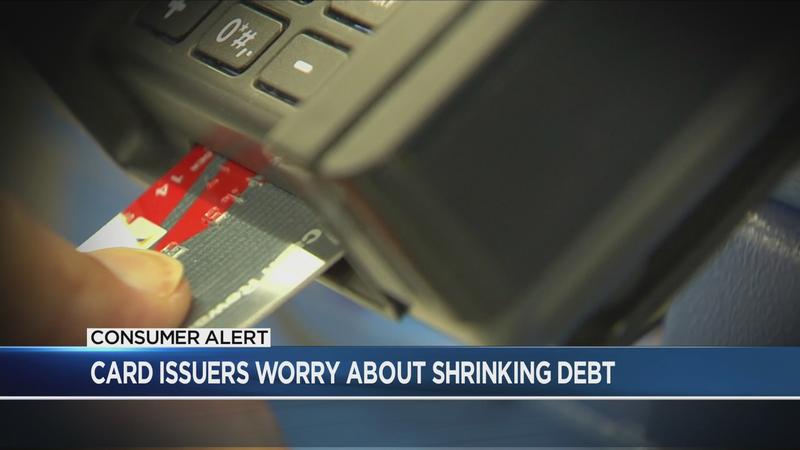Consumer Alert: Got debt? Here’s how to get rid of it!
[anvplayer video=”5028980″ station=”998131″]
ROCHESTER, N.Y. (WHEC) — This consumer alert takes a look at your lender’s lonesome lament. That’s right.
Credit card issuers are really concerned. That’s because many consumers used their stimulus money to pay off credit card debt, and they’re shrinking that debt at a rate not seen in decades. It’s so worrisome for lenders that Discover Card’s CEO, Roger Hochschild told the Wall Street Journal, "Delinquencies can’t get much lower than where they are now, but if your loans keep shrinking, your revenues come down and margins will get worse."
What he means is that Discover Card’s profit margins will get worse. Your credit card issuer wants you to use plastic instead of cash, pay just the monthly minimum and carry over debt in perpetuity because they make money on that high interest.
He need not worry. Despite the strides we’re making, credit card debt remains high. Value Penguin, the research arm of Lending Tree, crunched the numbers and found that the average credit card debt per family is almost $6,300.
So if you’re trying to pay off debt, here are two tried and true methods.
- The Avalanche Method.
- Pay the monthly minimum on all debt.
- Then put any extra money toward the debt with the highest interest rate.
- When that’s paid off, pay off the debt with the next highest interest rate.
- The Snowball Method.
- Pay the minimum on all accounts.
- Put any extra money toward the account with the smallest balance.
- When that’s paid off, then put the extra money to accounts with the next smallest balance.
For more methods for paying off your debt, U.S. News and World Report as well as Credit Card Insider.

[News10NBC]
And speaking of debt, you may remember a few months ago I told you that debt collectors could take your stimulus money.
That’s no longer the case in the state of New York. Gov. Andrew Cuomo signed legislation that protects your stimulus stash from debt collectors. Before the passage of this bill, consumer advocates feared that if state or local governments had gotten a court order to garnish your wages for debts due, they could take the cash from your wages and your stimulus too. The same was true of private debt like credit card debt. While the NY Attorney General issued guidance in April that said she believes state law does not allow debt collectors to take your stimulus check, this bill clarifies any question about the matter.
And that’s your consumer alert.